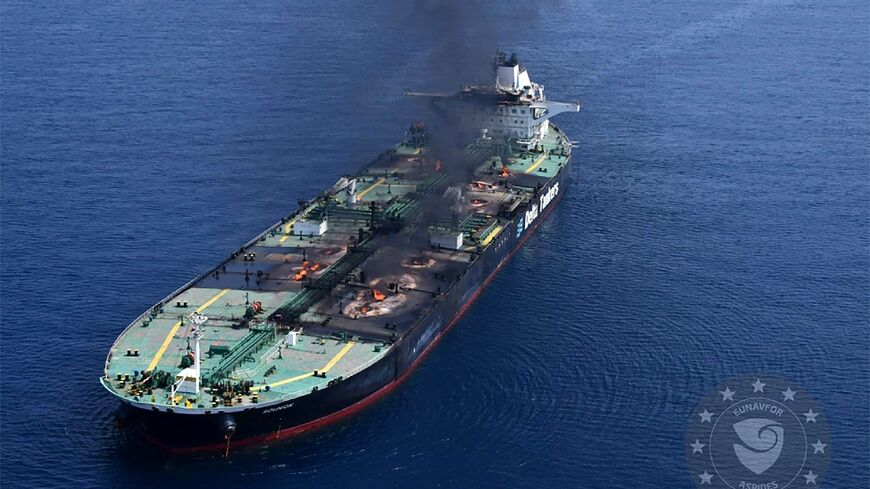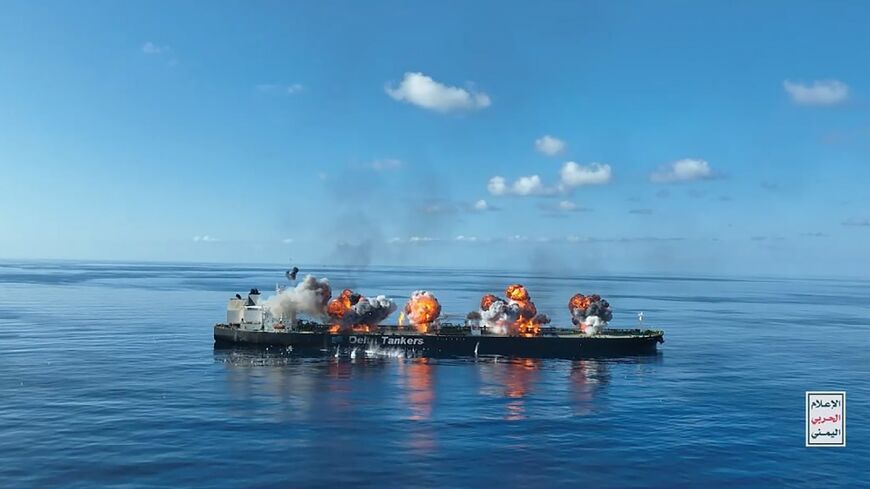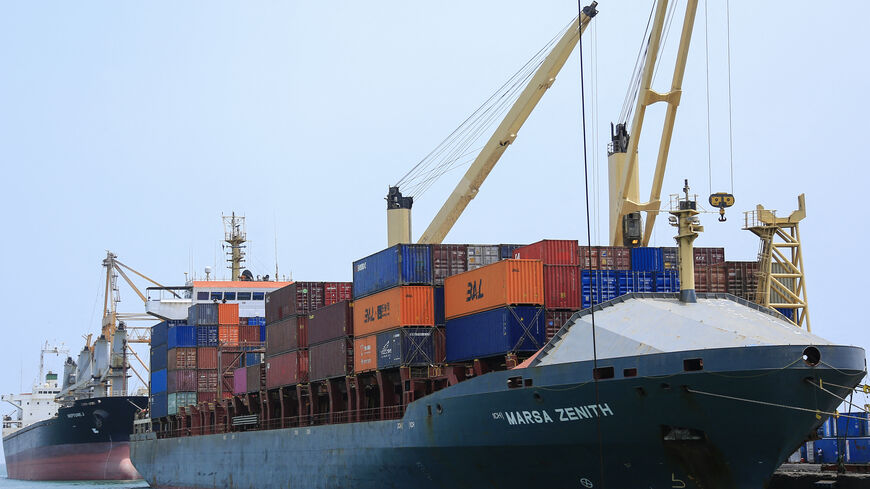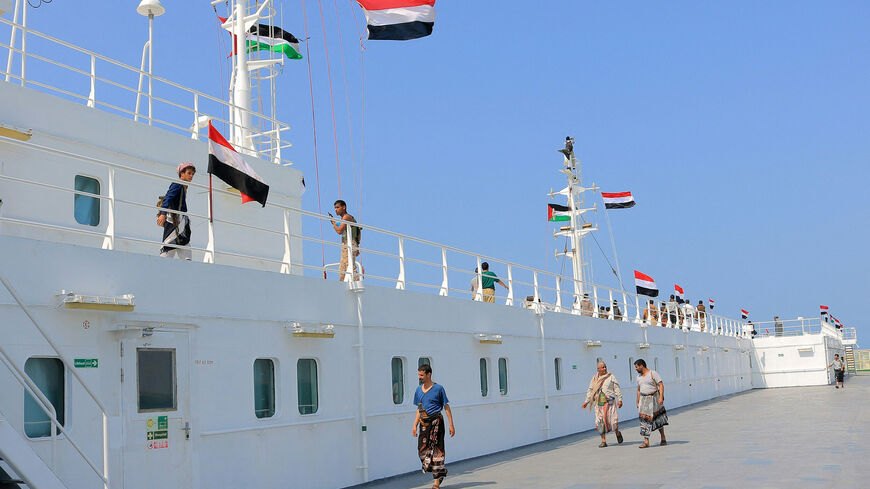'Not safe' to tow burning Red Sea oil tanker: EU mission
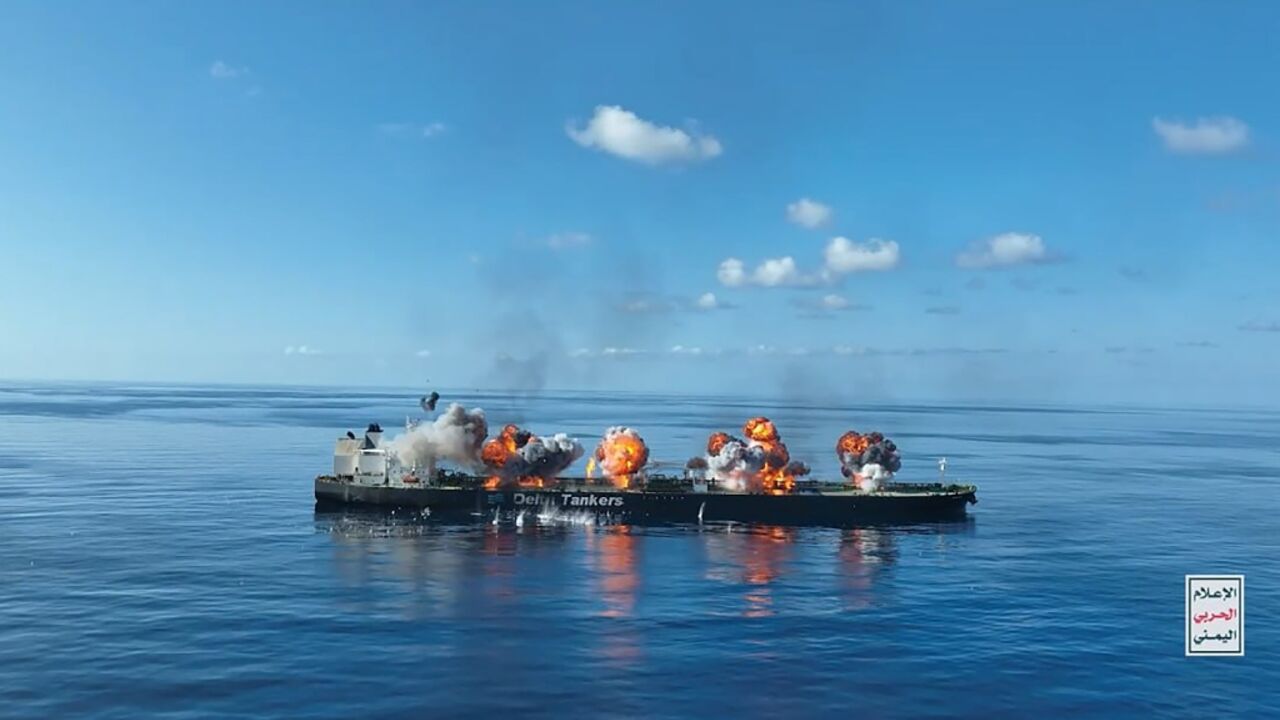
An operation to tow away a burning oil tanker attacked by Yemeni rebels in the Red Sea is too hazardous to proceed, a European Union naval mission said on Tuesday, warning of severe environmental risks.
The Greek-flagged oil tanker, Sounion, was hit by Yemen's Iran-backed Huthis off the coast of Hodeida on August 21 while carrying 150,000 tonnes of crude oil.
"The private companies responsible for the salvage operation have concluded that the conditions were not met to conduct the towing operation and that it was not safe to proceed," the mission said in a statement on X.
"Alternative solutions are now being explored by the private companies."
The EU's Aspides mission, which is protecting the tugs involved in the operation, said it aimed to avoid an "unprecedented environmental disaster in the region".
The United States has also warned of a potential ecological catastrophe involving one million barrels of oil, four times more than the 1989 Exxon Valdez disaster off Alaska.
Last week the Huthis released a video of masked men placing explosives on the Sounion and detonating them, causing several fires on board.
Aspides, which was formed in February to guard merchant shipping in the Red Sea following dozens of Huthi attacks, earlier said multiple fires were still ablaze.
"Several fires continue to burn on the vessel's main deck," it said, noting there were "no visible signs of an oil spill".
- Saudi ship 'not targeted' -
The Sounion's crew, made up of 23 Filipinos and two Russians, was rescued the day after the attack by a French frigate serving with Aspides.
The Huthi rebels launched their campaign against international shipping in November, saying it is in support of Gaza amid the Israel-Hamas war.
With scores of drone and missile attacks, purportedly targeting Israel-linked vessels, they have damaged several ships, killed or wounded multiple sailors and seriously disrupted global shipping.
In March, the Belize-flagged, Lebanese-operated Rubymar became the first ship targeted by the Huthis to sink during the conflict.
The Rubymar went down in the Red Sea with 21,000 metric tonnes of ammonium phosphate sulfate fertilizer on board.
The Liberian-flagged, Greek-owned bulk carrier Tutor also sank in June after being struck by the Huthis.
The Huthi campaign has prompted reprisal attacks by American and British forces, including one in May that the rebels said killed 16 people.
Separately on Tuesday, Bahri, a Saudi shipping company, denied comments from the US military that one of its oil tankers had been targeted by the Huthis.
"We unequivocally affirm that Amjad was not targeted and sustained no injuries or damage," Bahri said in a statement.
The US Central Command had said the Amjad, carrying two million barrels of oil, was attacked and hit on Monday.
In early 2015, Saudi Arabia mobilised an international coalition to fight the Huthis after they took the Yemeni capital Sanaa, forcing out the sitting government.
Efforts to resolve the conflict, which has caused one of the world's worst humanitarian crises, have stalled since tensions rose over the Israel-Hamas war.


